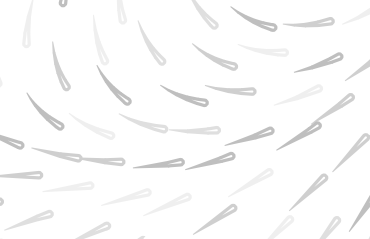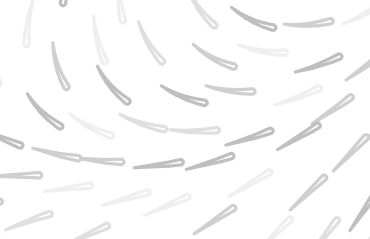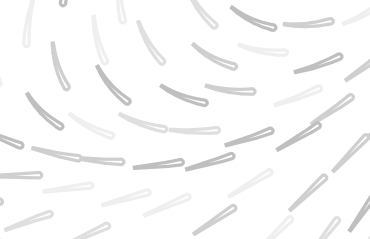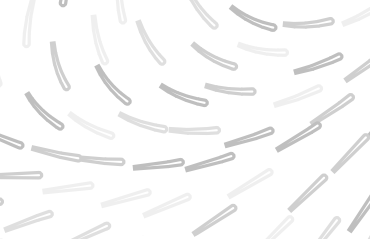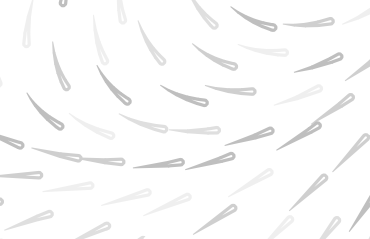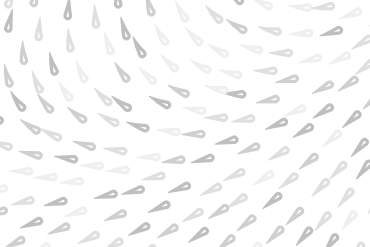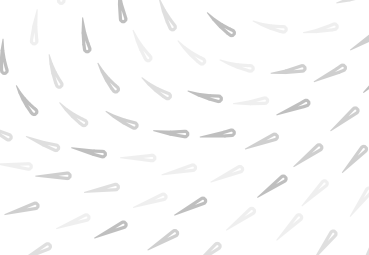Page 49 of 51
Re: Software that makes placemats
Posted: 22:09 Mon 09 Sep 2019
by jdaw1
akzy wrote: ↑20:14 Mon 09 Sep 2019I feel all the years of torment have had a terrible effect on me.
jdaw1 wrote: ↑17:55 Mon 09 Sep 2019
Where is this balance point? At a distance
d past Offley, measured in radii, in Mathematica notation
Solve[{D[20/(d + 2)^2 - 2/d^2, d] == 0 && d > 0}, d]
That’s the real root of 9
d³ − 6
d² − 12
d − 8 = 0 ⇒
d ≈ 1.73, which is in happy optical agreement with the output.
Having a quick look at this, I notice that d~1.73~sqrt(3). Do you have any insight as to why this is the case?
Coincidence:
d = (1 + 10^⅓ + 10^⅔) × 2/9;
d² = (7 + 4×10^⅓ + 10^⅔) × 4/27 ≈ 3.00138.
Re: Software that makes placemats
Posted: 11:23 Tue 10 Sep 2019
by akzy
Just a thought on a small modifier you could make to this package. Consider a dipole charge structure, (i.e. a closely spaced +ve and -ve charge, perhaps hidden in some text?) and you'd have magnetic dipole field lines!
Re: Software that makes placemats
Posted: 10:48 Wed 11 Sep 2019
by jdaw1
At yesterday’s
’66 horizontal some claimed that the droplets resembled a uniflagellar haploid gamete produced by a male mammal (not quite the original phrasing).
For my taste such a gamete has a very clear boundary between head and tail. This is not true of these droplets, for which the thickness is linear in the distance along central path. So I disagree, but nonetheless do not wish such thing to be falsely perceived.
One possible change would be to increase the value of the parameter
DropletsOuterWidthStart.
With
DropletsOuterWidthStart = 0.48, as was true for the
’66 placemats
With
DropletsOuterWidthStart = 1.44:
With
DropletsOuterWidthStart = 2.16:
With
DropletsOuterWidthStart = 2.88:
What’s the smallest value of DropletsOuterWidthStart such that the droplets don’t appear to be sperm cells?
Animated:
Re: Software that makes placemats
Posted: 16:54 Wed 11 Sep 2019
by DaveRL
To me the original don't look like sperm, which have a bulbous head and long wiggly tail. I prefer the original, but if there has to be a change would vote for the smallest change tolerable. I guess those that see the shapes as sperm have a wild time with Paisley Pattern.

Re: Software that makes placemats
Posted: 09:17 Thu 12 Sep 2019
by PhilW
jdaw1 wrote: ↑22:09 Mon 09 Sep 2019Coincidence:
d = (1 + 10^⅓ + 10^⅔) × 2/9;
Which can be simplified to
d = 2/(10^⅓ - 1)
(I don't think that helps in any way, nor is likely of much interest to anyone, but I noticed it could be simplified so...)
Re: Software that makes placemats
Posted: 09:33 Thu 12 Sep 2019
by PhilW
jdaw1 wrote: ↑10:48 Wed 11 Sep 2019
What’s the smallest value of DropletsOuterWidthStart such that the droplets don’t appear to be sperm cells?
An observation; you have chosen to replace the arrow-headed lines with small linear shapes all heading towards one or more large circles. The impression may not only be a consequence of your linear shapes. However, presumably if we can replace the arrow-headed lines with sperm-like shapes, then we could potentially use many alternatives which might generate different interpretations - ants spring to mind as an example.
Re: Software that makes placemats
Posted: 09:58 Thu 12 Sep 2019
by jdaw1
DaveRL wrote: ↑16:54 Wed 11 Sep 2019To me the original don't look like sperm, which have a bulbous head and long wiggly tail. I prefer the original
Fully agree, but significantly many seem not to.
PhilW wrote: ↑09:17 Thu 12 Sep 2019Which can be simplified to
d = 2/(10^⅓ - 1)
Is the surdish denominator a simplification? Maybe — tastes differ.
PhilW wrote: ↑09:33 Thu 12 Sep 2019An observation; you have chosen to replace the arrow-headed lines with small linear shapes all heading towards one or more large circles. The impression may not only be a consequence of your linear shapes. However, presumably if we can replace the arrow-headed lines with sperm-like shapes, then we could potentially use many alternatives which might generate different interpretations - ants spring to mind as an example.
The intention was ‘Droplets’, which fit the drinking theme. Surely we don’t want ants on the table, nor sperm.
Re: Software that makes placemats
Posted: 10:05 Thu 12 Sep 2019
by jdaw1
Would shorter droplets work?
Re: Software that makes placemats
Posted: 10:28 Thu 12 Sep 2019
by DRT
I'm beginning to regret mentioning this. What my comment was intended to convey is that the small part of my brain that still thinks like a 15 year old boy† recognised something in this design that made him snigger. That was it really.
† I believe it to be a scientific fact that all men above the age of 15 have this part of their brain.
Re: Software that makes placemats
Posted: 15:01 Thu 12 Sep 2019
by jdaw1
Re: Software that makes placemats
Posted: 16:36 Thu 12 Sep 2019
by DaveRL
DRT wrote: ↑10:28 Thu 12 Sep 2019
† I believe it to be a scientific fact that all men above the age of 15 have this part of their brain.
True. My wife sighs, while my sons and I giggle. I'm a bad influence, apparently.

Re: Software that makes placemats
Posted: 18:43 Thu 12 Sep 2019
by jdaw1
DaveRL wrote: ↑16:36 Thu 12 Sep 2019True. My wife sighs, while my sons and I giggle. I'm a bad influence, apparently.

You reprobate! Obviously, obviously, this has never happened to me.
Re: Software that makes placemats
Posted: 10:02 Wed 18 Sep 2019
by jdaw1
akzy wrote: ↑11:23 Tue 10 Sep 2019Just a thought on a small modifier you could make to this package. Consider a dipole charge structure, (i.e. a closely spaced +ve and -ve charge, perhaps hidden in some text?) and you'd have magnetic dipole field lines!
Sorry, forgot to report. The structure of
DropletsCharges has been changed to overload the position specification. As before it can be an integer, a
WithinPage glass number; now also allowed is an array of the form
[x y], in which
[0 0] is bottom-left of the page. Which allows positive and negative charges to be very close:
example, with four charges arranged as two dipoles at 90° to each other, the charges within each dipole being apart by 12pt = ⅙″ = 4.2⅓mm. (Separately, note the file size is 437kb, which drops to 106kb with
/Droplets false def.)
Re: Software that makes placemats
Posted: 10:33 Wed 18 Sep 2019
by akzy
jdaw1 wrote: ↑10:02 Wed 18 Sep 2019
Sorry, forgot to report. The structure of
DropletsCharges has been changed to overload the position specification. As before it can be an integer, a
WithinPage glass number; now also allowed is an array of the form
[x y], in which
[0 0] is bottom-left of the page. Which allows positive and negative charges to be very close:
example, with four charges arranged as two dipoles at 90° to each other, the charges within each dipole being apart by 12pt = ⅙″ = 4.2⅓mm. (Separately, note the file size is 437kb, which drops to 106kb with
/Droplets false def.)
The dipole example looks really sharp. Looking forward to seeing it in some placemats.
Re: Software that makes placemats
Posted: 12:15 Wed 18 Sep 2019
by jdaw1
akzy wrote: ↑10:33 Wed 18 Sep 2019The dipole example looks really sharp. Looking forward to seeing it in some placemats.
I don’t like it as much as the examples with isolated poles. YMMV.
For those wanting something like that, I did it in a slightly complicated way — numbers could have been used instead of formulae.
Code: Select all
/Droplets true def
/DropletsCharges [ % Length a multiple of 3: SheetNum or /All; position being either, type integer, the centre of the WithinPage circle, or array [x y]; charge being numeric; perhaps repeat.
/All {[MgnL 0.75 mul PageWidth MgnR sub 0.25 mul add 6 sub PageHeight MgnB MgnT sub add 2 div ]} -1
/All {[MgnL 0.75 mul PageWidth MgnR sub 0.25 mul add 6 add PageHeight MgnB MgnT sub add 2 div ]} 1
/All {[MgnL 0.25 mul PageWidth MgnR sub 0.75 mul add PageHeight MgnB MgnT sub add 2 div 6 sub]} -1
/All {[MgnL 0.25 mul PageWidth MgnR sub 0.75 mul add PageHeight MgnB MgnT sub add 2 div 6 add]} 1
] def % DropletsCharges
Re: Software that makes placemats
Posted: 14:08 Tue 12 Nov 2019
by jdaw1
A request has come from AHB, which I paraphrase here. He was guillotining
a page of decanter labels, and wanted thin grey lines between them to guide his chopping.
I have two sources of reluctance, on which comment is invited.
• The decanter labels are spread over the decanter-label page, usually A4, to be as tightly packed as possible subject to a minimum size (
DecanterLabelsMaxSmallerDimension×
DecanterLabelsMaxLargerDimension). But unless the page size is a fortuitous multiple of these minima in both dimensions, typically the decanter labels will be slightly further apart. This may well be further apart than the size of the business cards to the backs of which they are to be glued. So the correct place to guillotine depends on the size of the cards, not known at the time of making the PDF (and even if known, cards will typically be further apart).
• If I cut by hand, as is usual, I’m, unlikely to follow the grey lines precisely, and their remnants will be unsightly.
I could add a small grey line at the edge of the page, for those determined to guillotine precisely between. But I’m not sure that even this should be enabled by default.
Please comment.
Re: Software that makes placemats
Posted: 18:18 Tue 12 Nov 2019
by jdaw1
jdaw1 wrote: ↑14:08 Tue 12 Nov 2019The decanter labels are spread over the decanter-label page, usually A4, to be as tightly packed as possible subject to a minimum size (
DecanterLabelsMaxSmallerDimension×
DecanterLabelsMaxLargerDimension).
I could show more cut lines, perhaps only short and at the edge, such that each rectangle is
DecanterLabelsMaxSmallerDimension ×
DecanterLabelsMaxLargerDimension, lessening this problem. But not eliminating: if the useful areas of the cards that happen to be used is smaller than
DecanterLabelsMaxSmallerDimension ×
DecanterLabelsMaxLargerDimension, this cutting would be wrong.
Re: Software that makes placemats
Posted: 19:36 Tue 12 Nov 2019
by PhilW
jdaw1 wrote: ↑14:08 Tue 12 Nov 2019
A request has come from AHB, which I paraphrase here. He was guillotining
a page of decanter labels, and wanted thin grey lines between them to guide his chopping.
I have two sources of reluctance, on which comment is invited.
<snip ...>
Please comment.
I agree with the second point, though understand AHB's request. Perhaps give the feature a global flag, disabled by default for those who prefer to cut without lines, but which Alex (and anyone else) can enable to use when wanted?
Re: Software that makes placemats
Posted: 15:17 Wed 13 Nov 2019
by jdaw1
Done: Boolean parameter
DecanterLabelsGuillotineMarks added to software. Alex: please inspect
this example, and also the relevant page of the document for the
this year’s visit to the White Horse.
Re: Software that makes placemats
Posted: 14:44 Fri 15 Nov 2019
by Alex Bridgeman
Thank you.
Some observations:
(1) The short lines at the top overlap and confuse with the text of the instructions. I don't think these short lines add anything so I suggest they are removed.
(2) the broken lines around each label are more complex than I had in mind — my thought was simply to put a line halfway between each label rather than creating a gutter which needs to be trimmed twice. The edge of the paper on the left hand side can be the boundary for the left-most label, a series of lines separates this label from its companions to the right with a final line indicating where to cut on the right-hand side of the last label.
Top and bottom cutting lines would continue to be needed.
(3) Is there a reason for the decanter label cutting lines to be different colours and some being bold while others are not?
Re: Software that makes placemats
Posted: 20:16 Fri 15 Nov 2019
by jdaw1
Some confusion.
AHB wrote: ↑14:44 Fri 15 Nov 2019the broken lines around each label are more complex than I had in mind
AHB wrote: ↑14:44 Fri 15 Nov 2019Is there a reason for the decanter label cutting lines to be different colours and some being bold while others are not?
These don’t print. Display only. Have you a different PDF viewer?
AHB wrote: ↑14:44 Fri 15 Nov 2019I don't think these short lines add anything so I suggest they are removed.
These short lines, ≈ 2mm, are the only relevant lines that print.
Re: Software that makes placemats
Posted: 18:38 Wed 20 Nov 2019
by akzy
jdaw1 wrote: ↑12:15 Wed 18 Sep 2019
/DropletsCharges [ % Length a multiple of 3: SheetNum or /All; position being either, type integer, the centre of the WithinPage circle, or array [x y]; charge being numeric; perhaps repeat.
/All {[MgnL 0.75 mul PageWidth MgnR sub 0.25 mul add 6 sub PageHeight MgnB MgnT sub add 2 div ]} -1
/All {[MgnL 0.75 mul PageWidth MgnR sub 0.25 mul add 6 add PageHeight MgnB MgnT sub add 2 div ]} 1
/All {[MgnL 0.25 mul PageWidth MgnR sub 0.75 mul add PageHeight MgnB MgnT sub add 2 div 6 sub]} -1
/All {[MgnL 0.25 mul PageWidth MgnR sub 0.75 mul add PageHeight MgnB MgnT sub add 2 div 6 add]} 1
] def % DropletsCharges[/code]
I've started having a little play with the droplets feature. I'm wanting to play around with the positioning of the charges and ideally don't want to just use raw units (which i presume are mm ?) and instead tie them to geometries as you did in this example. I struggled to find documentation for what these key words mean such as MgnL/R/T/B (which which i can assume is "something" - left/right/etc.). Also, are there key words associated to circle location? I'd appreciate if you could point me in the direction of where to look.
Re: Software that makes placemats
Posted: 19:21 Wed 20 Nov 2019
by jdaw1
Please help me improve
the relevant section of the manual.
The array DropletsCharges is of a length that is a multiple of three, as follows. 0 An integer SheetNum for this charge, or /All meaning all sheets. 1 A location: this can be an integer, the centre of the WithinPage circle on that sheet; or a length array of length two, [x y] in which [0 0] is bottom-left of the page. 2 A numeric charge.
So to put
charge at the centre of circle
i on SheetNum=0, that’s just
0 i charge.
Also, from
the manual:
In PostScript sizes, distances, lengths, widths (and, approximately, font sizes) are denominated in points, where 72 pt = 1″ = 1 inch = 25.4 mm, and hence 1 pt = 1⁄72″ = 0.01388″ = 127⁄360 mm = 0.35277 mm, and 1 mm = 360⁄127 pt ≈ 2.83 pt. Even areas are in square points, there being 72×72=5,184 to the inch², and just over 8 to the mm².
Also, from
a more scary manual page:
GlassPositions, a triple-depth array holding the positions of the glasses. GlassPositions SheetNum get WithinPage get is an array, [x y], where x and y are the position of the centre of the glass placement.
akzy wrote: ↑18:38 Wed 20 Nov 2019MgnL/R/T/B
Used margin, so that gap between the edge of the page and non-header non-footer page contents:
Left;
Right;
Top;
Bottom. Usually equal to Margin…, unless
SideBySideGlassesTastingNotes is
true (which it probably isn’t).
Re: Software that makes placemats
Posted: 19:37 Thu 21 Nov 2019
by akzy
Greatly appreciated. I will have a play and report back.
Re: Software that makes placemats
Posted: 20:55 Thu 21 Nov 2019
by Doggett
Personally on the latest iteration for the Rebello Valente tasting, I think the droplets detract from the classic nature of the placemat and is like a very light version of Pollock’s number 14. I am all for pimping up the mats but this one is not for me... thoughts?
